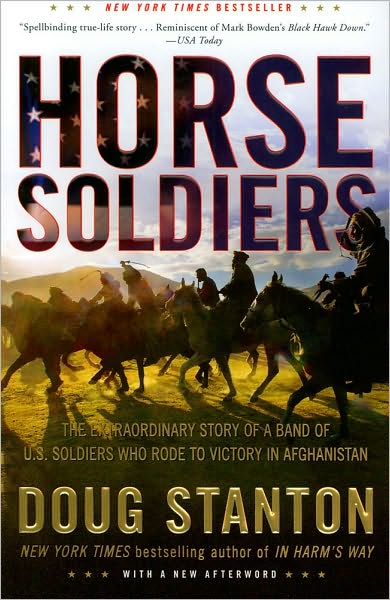Doug Stanton on US Special Forces in Afghanistan
/
Shortly after he released In Harm's Way, he toured the country, signing his book at bookstores across the country. At every stop along the way, he found that people everywhere had some way in which they could relate to the disaster of the U.S.S. Indianapolis: they were veterans, they had served on the ship, or were related to someone who had a meaningful relationship with the ship before it sank during the Second World War.
The sailors who had survived the sinking went through a hellish experience: hundreds of survivors in the water, without provisions and hunted by sharks (the disaster helped inspire elements of the film Jaws), numerous sailors simply gave up and perished. The descriptions were horrific: a sailor would let go from the life raft and would be set upon by sharks, after several days without water, with swollen digits and eyes, burned by the sun and hearing the screams of men around them. However, he said that many people told him that they had thought about giving up and going under, but were stopped by the memory of someone talking to them: a grandfather, parent, teacher, who encouraged them to continue onwards just a little longer. Three and a half days later, the remaining 321 survivors (out of the 880 who survived initially) were located and rescued. Stanton said that that made him wonder what he had said, what his parents and teachers had told others that would allow them to continue onwards in a hard situation. This was particularly relevant to the cadets in the room.
Stanton said that he was fortunate to be able to point attention to the veterans of the wars: their stories were at risk of being forgotten or under realized, and that writing was a particularly important way to preserve the past. People need to recognize and understand the contributions of the veterans.
When it came to researching the story behind Horse Soldiers, Stanton said that he ran into trouble because he was used to calling people up and asking them questions: the people involved in the US Special Forces weren't used to that, and he recounted several experiences where the soldiers weren't very forthcoming, because of the nature of their positions in the military, and that it took a little while before they realized what he was doing, and opened up to him. On September 10th, he told the group, you likely wouldn't have found Afghanistan on the plans for any military operation: it was a remote country that caught people by surprise, and there was a scramble to figure out just what to do. The first plans involved the deployment of conventional soldiers into the country, but there were no plans in place, nor any training to support such a mission. Plan B involved 12 Americans in a helicopter that landed in Uzbekistan, where they linked up with a couple of CIA operatives and twenty thousand Anti-Taliban fighters. Special Forces had never been used as the first people into an engagement such as this. The first operations were fast, cheap (70 million dollars), and involved around 300 soldiers, and were shortly followed up with conventional troops. On September 11th, the anti-Taliban forces had heard of the attacks on New York City and Washington DC, and realized that they would soon get help to their cause.
Special Forces, Stanton noted, were unique because they operated very differently from the conventional military: they weren't taken as seriously, because they were forced to understand how to affect changes from the inside of a command structure, rather than from an external means. As Jack Segal noted earlier, the people in Afghanistan have a very different outlook and mindset on their existence, something that has been difficult for the US to understand and either work with (or against). Building a common cause was essential, and the training that the soldiers had was essential.
Stanton talked about a training operation that special forces soldiers went through, called Pineland. USA Today has a good explanation of some of the background on the exercise here, but in short, it's a training operation that forces soldiers to work within relationships of another country: something that is highly relevant in today's battlefield in the Middle East. He noted that their training has a lot to do with failure: the key is to learn from one's mistakes, but also that it's not the decisions that they make when you have a problem: it's the decisions that you made 7 or 8 turns ago that are important.
Improvisation and decentralized decision making are important for this style of warfare as well: soldiers need to learn to improvise and to understand the context of what they are doing, but also to learn on the go as events change quickly. When the first soldiers arrived in Afghanistan, they were asked if they'd ever ridden a horse. Only two raised their hands, and that had only been as children. Stanton went on to characterize the war as a western, only with lasers. It's a situation that changes fluidly, and that the best way to understand, and to fight in a situation like that, is to understand the choices and decisions that were made earlier, and how they influence the present.
